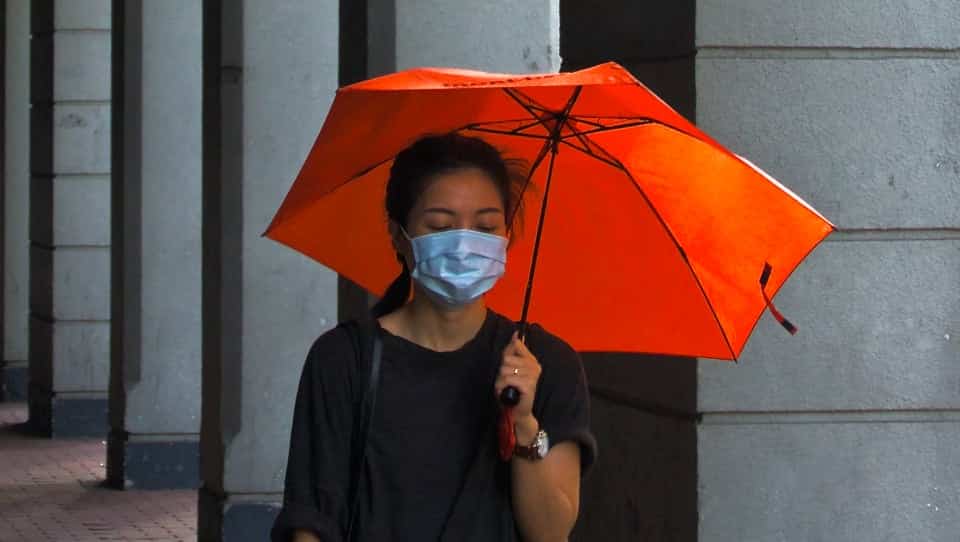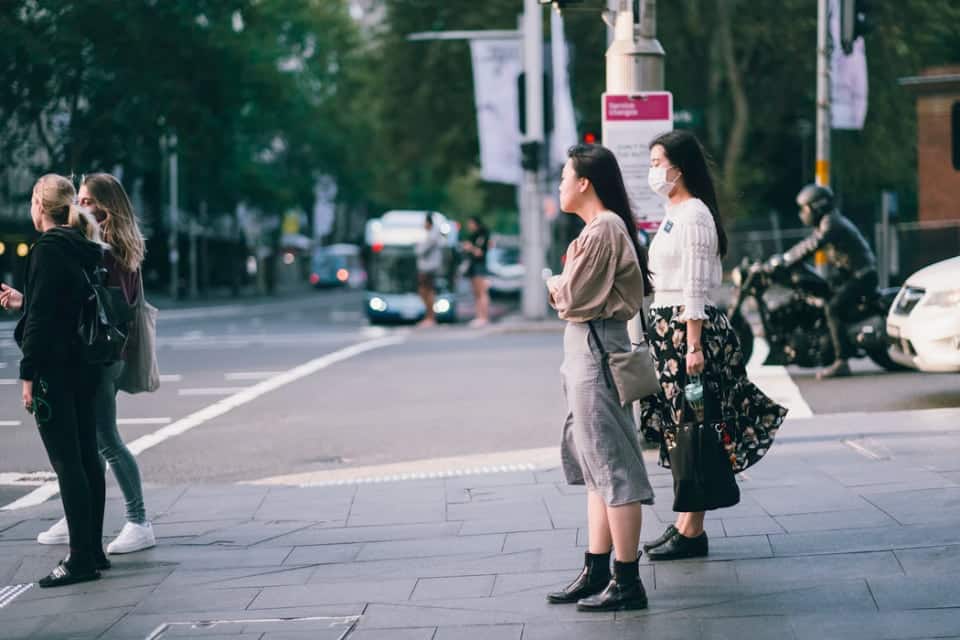COVID-19, COPING & CULTURE: Cultures Cope Differently. Here’s What You Need to Know.

Keep Going. We are all trying to figure out how to live our lives, run our businesses, and survive in another “new normal”, this time in a COVID-19 world. Having passed through the three initial stages of denial, anger, and acceptance at the beginning of this crisis, we are now all faced with the question of how to keep going with socially distanced relationships, up-ended schedules and general uncertainty. Whether COVID-19 changes the globalization — or de-globalization — game in the future remains to be seen, but in the meantime, we need to stay in touch, perhaps more than ever, with our global contacts, friends, business associates. Here are some important cultural tips to keep in mind when interacting with colleagues and associates abroad during the COVID-19 crisis:
- SOCIAL DISTANCING IS EASIER FOR SOME CULTURES THAN FOR OTHERS.
The degree to which people prefer to be physically close to other members of their group is often culturally determined. In many Latin, Mediterranean and Middle Eastern cultures, being physically close to someone, touching and “close-talking” is the norm. You can see it in how people greet each other, how close they stand when conversing, and how often they travel in groups.
Social anthropologists have even been able to rank the physical distances of the greatest comfort and discomfort according to culture. For example, many Asian cultures prefer to put physical distance between themselves and their colleagues. Consider that the traditional Chinese greeting between two individuals is the bow, and does not involve touching at all.
For cultures that need physical closeness in their daily activities, the shift to a virtual reality presents some difficulties. These cultures desire demonstrable signals that indicate your trustworthiness and “sympatico.” In the absence of being able to signal these values physically, make an extra effort to demonstrate that you value their relationship, with your words, spoken, texted or emailed. Express concern for how they are faring through this emergency, and let them know how much you appreciate them. Otherwise, they may be uncomfortable with your sudden “distancing” from them. - SOME CULTURES HAVE HIGH NEED FOR GROUP IDENTIFICATION, OTHERS, NOT SO MUCH.
All individuals take comfort in being members of a group where everyone identifies as members of the same culture. In Asian cultures individuals are most comfortable traveling together in groups and communicating with each other in their own language. Often, individuals in these cultures will not openly express their own thoughts and ideas unless they know their ideas already meet with the approval of others in their group, whether that group is a tour group on the street or a work-group in a meeting.
In comparison, in the US and many Northern European cultures, individuals are often most comfortable acting independently. You can see this expressed through behaviors such as independent traveling and communicating their own ideas and decisions directly, and often independently of how others, even in their immediate group, may feel or think.
This means that in socially-distanced situations, you may need to inquire more often, and in several different ways, to verify the information you have received from individuals in high group-identity cultures before you can assume that you have the full picture of what they mean. In cultures where individual identity is more freely expressed, this may not be necessary.
Perhaps more importantly, these differences may significantly influence how successful cultures fight against the spread of the virus: for example, the strategies employed by Korea, Japan and China in fighting the virus depend significantly on the group identification of these cultures. Similar strategies in other less “group”-minded cultures, such as in the US, maybe less successful. Individualist cultural orientations do not lend themselves to quick and united group action, something that appears to be central to what needs to be done to win the war against COVID. - I MAY TELL YOU WHAT I THINK…OR WHAT I THINK YOU WANT TO HEAR.
For cultures where the need to present a unified picture of group identity is strong, it can be difficult to openly and honestly discuss challenges, especially if the information, in their eyes, reflects badly on them, or you. Some anthropologists refer to this phenomenon as “face”, where things are said with the primary purpose of making someone look good, sometimes at the expense of clarity, truth, and honesty.
If you are face-to-face with individuals in these cultures, the real meaning of what they are trying to say maybe buried in gestures, facial expressions, exaggerated silences. However, in socially-distanced situations, where communication is through technology, it becomes difficult to “read” these subtle but important clues. Therefore, when possible, virtual meetings should include video. If you are limited only to audio, do not take the words being spoken at “face” value. Double-check that you understand what they mean, and do not ask questions that require a “yes” or “no” as an answer (as these cultures will always provide you with a “yes” to indicate they heard the question, but avoid giving you an answer if they feel the response that will be unpleasant for you or them). Instead, ask questions that require specific information in response. - SOME CULTURES RESPOND TO THE “WHAT”; OTHERS RESPOND TO THE “HOW”.
Quoting a process, or a set of rules as the reason for doing something works in many cultures, such as Northern Europe, North America, Singapore, Hong Kong, and Australia. However, processes and rules in many other cultures, like in Asia, Latin America, Southern, and Eastern Europe, the Middle East and Africa are rarely as important. In other words, “do I cross the street against the red light (the rule) because there are no cars coming (the situation), or do I wait for the red light to change, even if no cars are coming before I cross the street”?
In our new, uncertain COVID-19 world, we need to remain extremely flexible to the rapid changes of the moment. This new normal will be affected by the culture that your colleague comes from, as their culture will strongly influence the way they prioritize their day-to-day activities in response to the crisis. Norm and rule-focused cultures will presume implementation of procedures, and obedient compliance; situation-based cultures will understand the requirement for processes and procedures but will question them and expect individuals to have the right to challenge these rules. When working with rule and process-based cultures, such as India, for example, it is all the more important to spell out all details, no matter how small, as anything unstated can become problematic. When working with situation-based cultures, such as China, recognize that everything agreed to on Monday may need to be re-negotiated on Tuesday, in light of the changed situation Tuesday morning may bring. - UNCERTAINTY? BRING IT ON!
Finally, some cultures, like Jamaica, Nigeria, Hong Kong, the UK, and the US, tend to thrive in uncertainty, and have a high tolerance for risk and are capable of making big decisions with “just enough” information quickly. Other cultures, like Japan, Korea, Portugal, and France, have a greater need to explore every detail no matter how small. In extremely uncertain times, cultures with high levels of risk tolerance may be inherently more capable of managing the equally high level of uncertainty brought on by the crisis. On the other hand, cultures with high levels of risk-avoidance may be more capable of managing all the details required for successful crisis decision-making.
COVID-19: GLOBALIZATION’S ULTIMATE TEST.
Little could we imagine that globalization, with its global supply chains, transportation, and reliance on technology would become a global petri dish for the dissemination of a dangerous pathogen. Globalization certainly shares some of the blame for this virus’ rapid evolution into a worldwide pandemic, however, this pandemic is not proof of any kind of globalization’s failure.
The benefits of globalization far outweigh those elements of this pandemic that have been enabled by globalization, and the globalization toothpaste is, and will most definitely remain, out of the tube. Globalization, premised as it is on technology, will continue, and is the new human reality, and will be so long after COVID-19 is gone. That there are downsides to globalization does not change the fact that it is with us, has brought significant benefits to millions, and is not going away, despite how we deal with this pandemic. The irony of COVID-19 is that the success with which we deal with it depends upon how we view globalization.
At this moment we have a decision to make: will we continue to see globalization, with its dependence on open borders, the sharing of information, global communication and coordination, as a tool we can use for solving this pandemic? Or will we retreat in our panic and fear in our efforts to defeat COVID-19, into an inefficient haphazard nation-by-nation response? The COVID-19 virus doesn’t care how we see the world, but we should care about how we envision the post-COVID-19 world to be: will it be the bitter landscape of a long, protracted battle against a global threat due to a retreat from the benefits of global cooperation, or a world more globally united precisely because of its coordinated efforts to defeat a foe that required the efforts of all.
Written by Dean Foster. Have you read?
# Richest Women In The World For 2020
# Africa’s Billionaires: Richest People In Africa, 2020
# Most economically influential cities in the world, 2020
# The World’s Best Cities For Luxury Shopping, 2020
# World’s Best Countries To Invest In Or Do Business For 2020
Add CEOWORLD magazine to your Google News feed.
Follow CEOWORLD magazine headlines on: Google News, LinkedIn, Twitter, and Facebook.
This report/news/ranking/statistics has been prepared only for general guidance on matters of interest and does not constitute professional advice. You should not act upon the information contained in this publication without obtaining specific professional advice. No representation or warranty (express or implied) is given as to the accuracy or completeness of the information contained in this publication, and, to the extent permitted by law, CEOWORLD magazine does not accept or assume any liability, responsibility or duty of care for any consequences of you or anyone else acting, or refraining to act, in reliance on the information contained in this publication or for any decision based on it.
Copyright 2024 The CEOWORLD magazine. All rights reserved. This material (and any extract from it) must not be copied, redistributed or placed on any website, without CEOWORLD magazine' prior written consent. For media queries, please contact: info@ceoworld.biz
SUBSCRIBE NEWSLETTER












